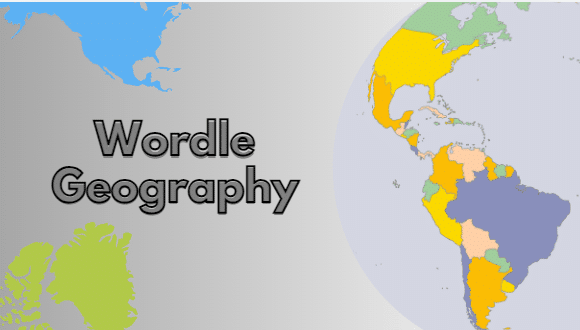In the world of digital puzzles and brain games, “Wordle Geography” has emerged as a captivating variation of the classic Wordle game. It challenges not only your word deduction skills but also your geographical knowledge. Whether you’re a geography enthusiast or someone looking for a unique brain exercise, Wordle Geography offers an exciting way to explore the globe while having fun. In this article, we’ll dive deep into what Wordle Geography is, how it works, its educational benefits, and tips to improve your game.
What Is Wordle Geography?
Wordle Geography is a variation of the popular game Wordle, which became a viral sensation in early 2022. Wordle challenges players to guess a five-letter word in six tries, offering feedback with each guess in the form of color-coded hints. However, Wordle Geography introduces an exciting twist: instead of random five-letter words, players are tasked with guessing the names of countries, cities, or geographical features.
The game provides players with a daily challenge, just like Wordle, but focuses on global knowledge. The challenge might be a country name or even a famous city, lake, or mountain. This twist adds an educational component to the game, offering players an opportunity to expand their understanding of the world’s geography while enjoying a fun guessing game.
How Wordle Geography Works
The gameplay mechanics of Wordle Geography are similar to those of the original Wordle, but with a geographic spin. Here’s how it works:
- Daily Challenge: Each day, players are given a new geographical word to guess. It might be a country, city, or geographical feature (like a river or mountain).
- Color-coded Hints: After each guess, players receive feedback in the form of colored tiles:
- Green: The letter is correct and in the correct position.
- Yellow: The letter is correct but in the wrong position.
- Gray: The letter is not in the word at all.
- Six Attempts: Players have six attempts to guess the correct geographical name. With each guess, they can refine their choice based on the color-coded feedback.
For example, if the challenge is “Brazil” and the player guesses “Spain,” they will receive hints based on whether any letters from “Spain” are in the correct positions or part of the word at all.
Educational Benefits of Wordle Geography
Wordle Geography isn’t just a game for fun—it’s also an educational tool.
-
Improved Geographic Knowledge
One of the most significant benefits of Wordle Geography is the opportunity to learn more about the world’s geography. By engaging with country names, cities, and other geographical features, players can expand their knowledge of different regions and cultures. Players might encounter names of countries they are unfamiliar with or cities they’ve never heard of, which can spark curiosity and encourage further learning.
-
Wordle Geography challenges
Wordle Geography challenges players to recall and recognize geographical names, exercising their memory and cognitive abilities. The game requires critical thinking and pattern recognition, helping players develop these skills while engaging with the puzzle. The process of elimination and deduction is an excellent mental workout, improving logical reasoning and problem-solving.
-
Cultural Awareness
Beyond learning about geography, the game can also foster cultural awareness. Players are exposed to different countries, cities, and regions they may not be familiar with. This can lead to curiosity about the people, history, and culture of these places. Wordle Geography might prompt a player to learn more about a country they guessed or a city they had never heard of before the game.
-
Multilingual Opportunities
In some versions of Wordle Geography, there are challenges that feature place names from non-English-speaking regions. This opens up the opportunity for players to expand their linguistic knowledge and familiarize themselves with place names in various languages, further enriching their geographic and cultural literacy.
Also Read : www.preqin.com.
Strategies for Success in Wordle Geography
While Wordle Geography can be a challenging game, there are several strategies you can adopt to improve your chances of success.
-
Start with Common Geographical Names
Just as players often start regular Wordle with common five-letter words, it helps to begin Wordle Geography with familiar country names or city names. Starting with countries that have well-known names (like Japan, India, or Chile) can give you a good idea of which letters are present in the word.
-
Use a Process of Elimination
Once you receive feedback from your initial guess, start eliminating letters that are not part of the geographical name and focus on rearranging the yellow (correct but misplaced) letters. This process of elimination can help you zero in on the correct answer more quickly.
-
Think Regionally
If your first guess doesn’t yield much information, try thinking in terms of regions. For instance, if you guessed a European country and none of the letters matched, consider trying a country from a different part of the world, such as Africa or Asia. Thinking about continents or geographical regions can guide your next guess.
-
Familiarize Yourself with Lesser-Known Places
While major countries and cities are easier to guess, Wordle Geography also includes lesser-known locations. Familiarizing yourself with smaller countries, regions, and geographical features can help you succeed. For example, many players might not immediately think of places like “Oman” or “Nepal” when starting the game, but these smaller or less familiar names might appear in the challenge.
Wordle Geography as a Social and Educational Tool
Like the original Wordle, Wordle Geography has a social component. Many players share their daily results with friends or post them on social media, creating a sense of community and friendly competition. This interaction encourages players to improve their skills and deepen their knowledge.Moreover, educators have started incorporating Wordle Geography into classrooms as a fun and interactive way to teach geography.



